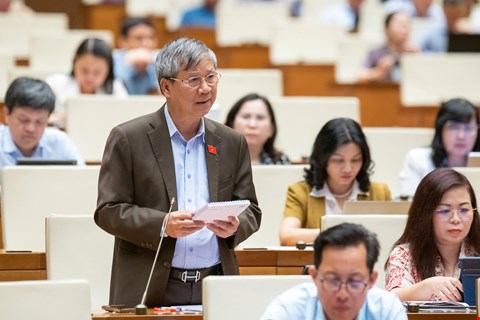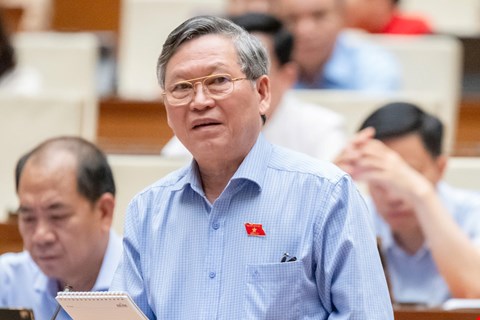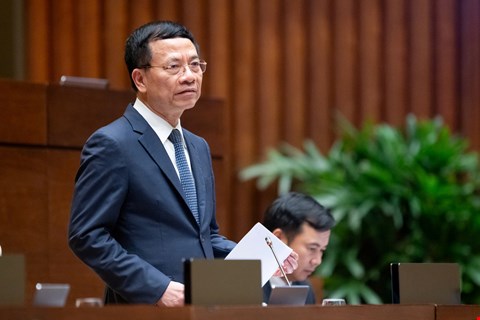Continuing the 9th Session, on the afternoon of May 13, the National Assembly discussed in the hall the draft Law on Science, Technology and Innovation.
In particular, the content of the mechanism for distributing profits from commercialization of research results on the use of the state budget was of interest to many delegates.
According to Article 28 of the draft law, at least 30% of after-tax profits will be rewarded to authors if the results are leased, sold, transferred, or transferred for use rights; at least 30% of the value if contributing capital, cooperating, or doing business.
Profit is also used to reward individuals who directly organize commercialization, reinvestment in scientific, technological and innovation activities and other activities.
In particular, if the research results are patents, layout designs, industrial designs and protected plant varieties, the author will also enjoy additional benefits under the Law on Intellectual Property.

Regarding the above profit level, delegate Nguyen Anh Tri - National Assembly Delegate of Hanoi City proposed the figure of "only 30%, not more".
"I am also a scientist, so I know that if the profit divided among scientists is 30%, it will be enough. Here, we remove the word "minimum", because 30% is reasonable and to avoid having to discuss anything more, then having a meeting to discuss how much the minimum 30% is, it is extremely harsh", delegate Nguyen Anh Tri expressed his opinion.
In addition, the delegate also suggested adding the content of profit division in groups of subjects operating science, technology and innovation from practical needs and not using the state budget.
According to the delegate, although this group has reached an internal agreement within the group, it also needs to be included in this law.
Delegate To Van Tam - Member of the National Assembly of Kon Tum province said that the draft law does not clearly stipulate the mechanism for applying results of social scientific and humanistic research to practical life.
According to the delegate, this is an important process to turn knowledge into values serving the development of society, improving the quality of life and supporting the policy making process.

Delegate To Van Tam cited that the draft law stipulates the commercialization of scientific and technological research results in many different forms, such as leasing, selling, transferring, transferring, joint ventures, associations with enterprises, cooperation in capital contribution, establishing or participating in the establishment of enterprises, establishing innovative startups, dividing profits, etc.
"We see that these forms, for science and technology and applied science, are easy to apply, but for social science and humanities, it is very difficult to link with businesses.
Therefore, I see the need for specific and clear mechanisms and regulations to apply scientific research results of social sciences and humanities to practical life", delegate To Van Tam contributed his opinion.
Speaking at the reception of the opinions of the delegates, the Minister of Science and Technology Nguyen Manh Hung assessed that the draft law has built in the direction of strengthening autonomy for organizations, individuals and subjects in the implementation of the task of managing the spending apparatus according to the spending mechanism.
However, that comes with the requirement to improve accountability and transparency in resource use. In particular, organizations and individuals performing the task have the right to own research results for commercialization.

Regarding the profit level according to the delegate's opinion, Minister Nguyen Manh Hung said that the drafting unit will consider setting or having a range.
"In fact, the Korean side is up to 50%. Thereby, creating motivation for innovation, promoting the spirit of daring to think and daring to do in research, conducting research towards practical results, closely linking science, technology, innovation and socio-economic development", said Minister Nguyen Manh Hung.











